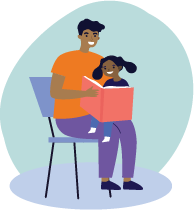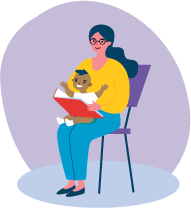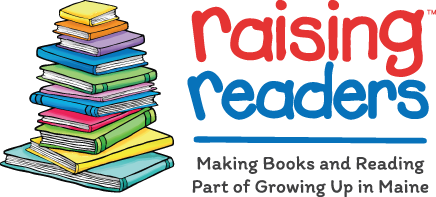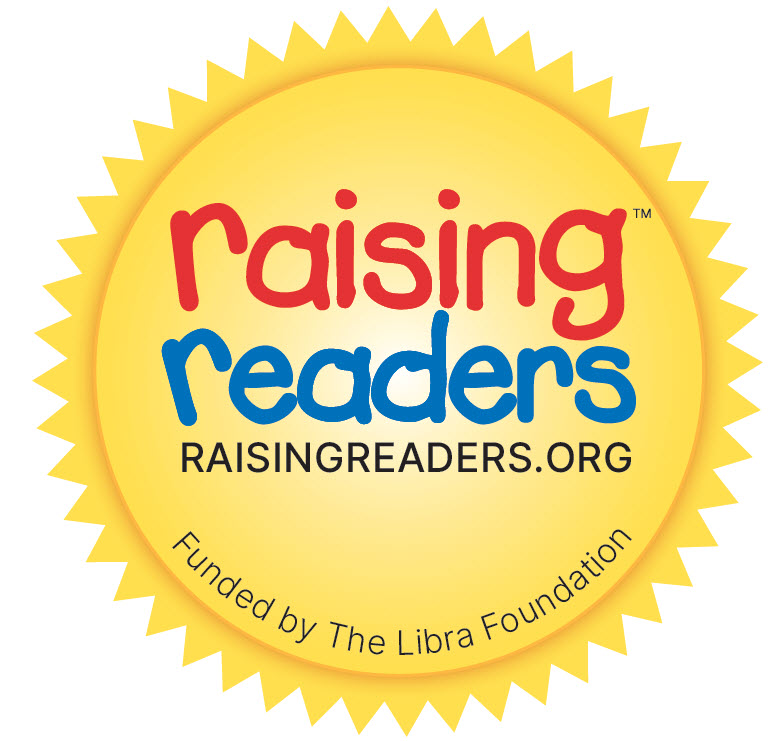Emergent and Early Literacy
What is emergent literacy?

Emergent literacy is a term that means getting ready to read.
Newborns come into the world ready to process language! In the first 3 years of a baby’s life, they become more aware of the language we use. Each time we read, talk, and sing with them, we help build their understanding of language. Reading aloud helps them learn how text works and helps to increase their language and literacy skills as they grow.
This early phase, before children are reading on their own, is called the emergent literacy phase. Emergent literacy leads to early literacy.
Emergent literacy skills
Children learn many important things during the emergent literacy phase, including:
- Vocabulary building
- Learning how our language works and how to use language to tell stories, share ideas and ask questions
- Learning how to hold books
- Learning to identify different types of books like storybooks, fact books, poetry, cookbooks, etc.
- Learning to write by drawing and scribbling
- Playing with the sounds of language through songs, rhymes and tongue twisters
- Building knowledge of the world around them
- Understanding letter-sound connections
- Developing a love of literacy (reading and writing)
Why is emergent literacy important?

Reading aloud to babies is the single most important thing we can do to help prepare them for reading and learning. That’s because emergent literacy is the foundation on which all future learning happens. The stronger a child’s literacy foundation, the stronger all future learning will be.
Every time we read, talk, and sing with babies, we are creating strong bonds and building their foundation for learning and understanding. These connections have a positive impact on children for the rest of their lives!
What we already know:
- Reading aloud to children, starting at birth, helps build brain connections during the first 5 years of their life. This is the time in which 90% of a child’s brain development happens. (Center on the Developing Child at Harvard University)
- The number of words a child knows when they start kindergarten is a predictor of their future success in school and in life. (Read Aloud 15 Minutes)
- More than 1 in 3 American children start kindergarten without the skills they need to learn to read. (American Academy of Pediatrics)
- Reading aloud to children helps associate books and reading with people they love, which motivates them to read more. (Healthy Children)
- Reading, talking, singing, and playing with young children helps to improve their language, literacy, social skills, and emotional skills. It also helps to secure the bond between parent/caregiver and child. (American Academy of Pediatrics)
- A person’s ability to read lowers their risk of poverty, improves their chances of employment, increases social inclusion, and leads to a healthier life. (The United Nations Education, Scientific, and Cultural Organization)
- Adults with low literacy skills often struggle to access and use the healthcare system for themselves and their young children. This can cause risks of developmental and health issues. (Barbara Bush Foundation for Family Literacy)

